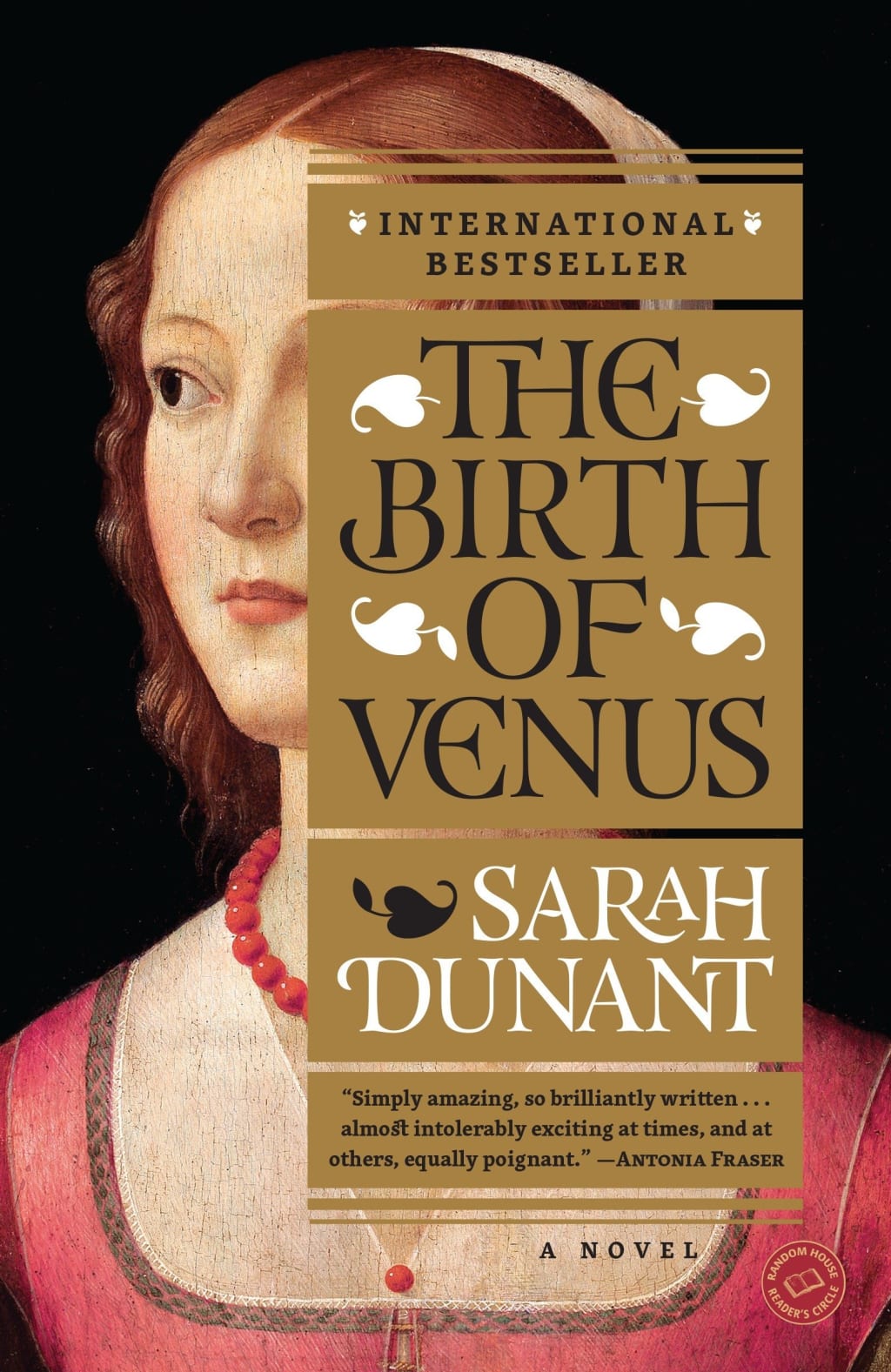The Birth of Venus by Sarah Dunant
A Book Review

Themes
- Italian renaissance, Italy, Florence, Italian culture, de Medici,
- Painting, art, beauty, religious fundamentalism, religion vs sciences, art history
- Love and loss, maturation and coming of age, women’s rights, women’s role,
- Familial secrets, family history, Sex and repression, betrayal, honesty
- Fiction, historical fiction, romantic fiction, realistic fiction, poetic prose, descriptive fiction
“Either you’re standing under your halos, eyes up to heaven, or you’re munching apples in their faces and flashing your bush. I’m not even sure they know which they prefer. The best you can do is choose when you change your costume.”
Almost ten years back I picked up this book on a whim at a Goodwill, the summary seemed interesting enough: set during the Italian Renaissance a young girl becomes friends with a reticent painter as she seeks to learn new techniques and pursue her own future. The plot focused the main character, Alessandra as an element of rebellion to the societal norms set for women and of course there was a romantic aspect to it also. I had flipped through the story, testing out bits and sentences to decide if I liked Dunant’s writing style and voice before purchasing it. This is something I do with all potential buys, I almost never read the very beginning, I like to find a place where the story is already underway. Finding bits of dialogue or description once the author has settled into their stride.
Dunant is a descriptive writer, she delights in painting a clear picture for her characters to walk through. Stylistically I found it immersive, and despite having never read any sort of romantic fiction before this point, I fell into this book.
Alessandra is a strong heroine and the description of her body within the opening of the book was compelling. Inviting hopes of a dark fiction and an exceptionally wicked character. Her body is discovered in a convent- tattooed with a lurid and realistic painting of a serpent wrapped around all of her. Interesting, daring, seductive. From there the story backtracks decades into Alessandra’s past as she details the fall of the Medici in Italy and the revolutionary state of the country at the time. There was a budding regression as forms of art and science were being rejected for religious fundamentals. Knowing absolutely nothing on these subjects, I cannot weigh in on the Dunant’s historical accuracy, and have read a few criticisms on the topic. But I enjoyed the book despite itself. As the girl grows into herself body and soul, she embraces her own art and finds a kindred in the form of a Germanic monk. The boy is a bit older, reticent, and only speaks Latin which limits his ability to communicate with most people except Alessandra, who is fluent due to her studies. Together they grow close as they teach and learn different painting techniques, though their relationship is doomed for multiple reasons.
As a monk, he begins to worry for his immortal soul as he feels a pull towards not only Alessandra, but delves deeper into his interest in the sciences to better capture life in art. The girl marries, her husband loves her in public only (and another in private). I felt for her as I read the horror of their consummation. Further family secrets are revealed and in the midst of the chaotic upraising beyond their doors, Alessandra reunites with her old friend. What follows either saves or damns their souls, and both characters are left reeling in the aftermath.
I wanted to love this book through to the end. The writing was clever and captivating, the story was a simple one heard a thousand other ways. I didn’t expect a happy end, but I did expect a fulfilling one. In the final chapters, I felt I was denied both in favor of what must have been the more realistic path. Since the story begins at the end, you know where Alessandra dies, but as the details unfurled, I was left wanting. I was left angry and feeling abandoned as she was. I recommend this book to those who enjoy romantic historical fiction. Dunant writes each character in a way that their interactions match their own interests and goals without forcing greater exposition or fully explaining themselves. She casts light on this in Alessandra’s perspective and never divulges more than the character herself might glean at the time giving them depth and voice. Dunant writes beautifully, each page was lovely and thoughtful. I feel that I should recommend it for that if nothing else.
Overall, it is a good book, but the ending might frustrate or hurt if you are expecting fulfillment or closure. I personally, felt upset and disappointed. In my end I read it, felt it, and went against my own nature when I donated it. I have never looked back, though I have thought of it often; much like Alessandra herself.
About the Creator
Kayleigh Harrier
On a journey to learn and define myself as more than the sum of so many specially crafted keywords. Never quite the same person twice and newly dedicated to owning my life.
A wife, mother, and older than my years might suggest.






Comments
There are no comments for this story
Be the first to respond and start the conversation.